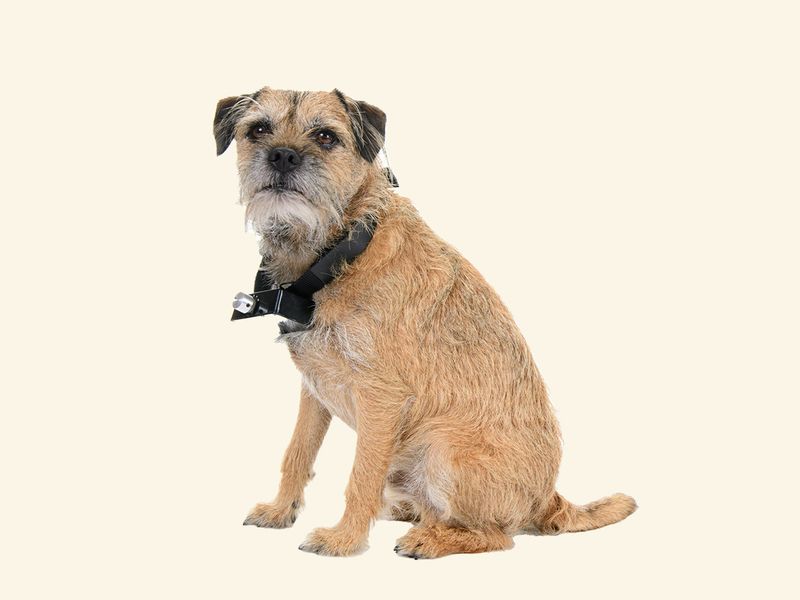Animal welfare organisations call for shock collar ban
Leading veterinary and animal welfare organisations call on Scottish Government to ban Electric Shock Collars.

Ahead of today’s debate in Holyrood on the Welfare of Dogs (Scotland) Bill, introduced by Christine Grahame MSP, a group of leading veterinary and animal welfare organisations have repeated their call for a ban on “unnecessary and cruel” Electric Shock Collars.
Dogs Trust, Scottish SPCA, Cats Protection, Blue Cross, PDSA, British Veterinary Association, Battersea Dogs and Cats Home, Edinburgh Dog and Cat Home, RSPCA, OneKind and The Kennel Club have jointly written to Jim Fairlie, Minister for Agriculture and Connectivity, to repeat their calls for a ban on the devices which are used by some to train pets.
This follows amendments to the Bill by Ross Greer MSP which will require prospective owners to commit to training their dog in a safe and healthy manner, as well as preventing unnecessary suffering, including by not using any device which applies an electric current to the skin.
Electric Shock Collars are designed to work by punishing unwanted behaviours through the application of a shock to the dog’s neck. In order to change unwanted behaviour, the shock administered by Electric Shock Collars needs to be strong enough for the animal to want to avoid feeling that painful sensation again.
Studies have also shown that the use of devices such as Electric Shock Collars have serious impacts on the welfare of animals. This includes behavioural and physiological signs of distress and the exacerbation of, or development of new, unwanted behaviours. Robust research evidence shows that such techniques are not needed; positive reinforcement is just as effective at changing behaviour.
Speaking on behalf of Dogs Trust, Scottish SPCA, Cats Protection, Blue Cross, PDSA, British Veterinary Association, Battersea Dogs and Cats Home, Edinburgh Dog and Cat Home, RSPCA, OneKind and The Kennel Club, Owen Sharp, Chief Executive of Dogs Trust, says:
“We welcome Christine Grahame’s Welfare of Dogs (Scotland) Bill which aims to establish a more responsible and informed approach to obtaining and owning a dog, as well as Ross Greer’s amendments to the Bill which would effectively ban the use of shock collars on dogs.”
“Shock collars are both unnecessary and cruel, a view that is shared by welfare experts and animal lovers all over Scotland and the rest of the UK. Research has shown that electric shock collars negatively impact pet welfare and, instead of improving behaviour, risk causing further behaviour problems. Worse still, they can be a mechanism for abuse if used in anger.
“We care for thousands of dogs in Scotland every year, many of whom work at rehoming centres with our teams of qualified behaviourists, and we know that positive reward-based methods are as effective.
“We ask the Minister for Agriculture and Connectivity to look again at banning the use of electric dog collars and also banning other aversive training devices such as electric shock containment systems. There is no place or need for these cruel devices in modern pet ownership or training.”
Holly Conway, The Kennel Club’s Head of Public Affairs added:
“Our data shows that a ban on electric shock collars is supported by more than three-quarters of the population, while research has also shown that they can cause physical and psychological harm. We therefore urge the Minister for Agriculture and Connectivity to once again consider a ban on these outdated and cruel devices, to help protect the health and welfare of dogs in Scotland.”
Livestock worrying is the most common reason given to justify the use of Electric Shock Collars by those who still use them. However, data from five police forces suggests that most livestock worrying incidents (nearly 7 in 10) occur from unaccompanied dogs, so the use of Electric Shock Collars would not prevent these offences. For the minority of livestock worrying cases which involve dogs being walked with an owner or walker, keeping a dog on a lead in the vicinity of livestock is the most effective way to prevent livestock worrying.
Electric shock collars are currently legal in Scotland, England, and Northern Ireland. In 2018, the Scottish Government introduced guidance condemning the use of shock collars but stopped short of banning them. The Scottish Animal Welfare Commission published a report in 2023 that concluded that ESCs should be prohibited in Scotland.
A ban has been in place in Wales since 2010 which covers the use of all electronic collars and containment fence systems.
The Kennel Club commissioned a survey in 2023 which showed over three quarters of the British public would support the Government to introduce a ban on electric shock collars. Meanwhile, research conducted by Dogs Trust revealed around a third (31%) of the public wrongly believe shock collars are already illegal. Campaigns by the Scottish SPCA and RSPCA have resulted in thousands of members of the public writing to MSPs and MPs to call for a ban on shock collars.
